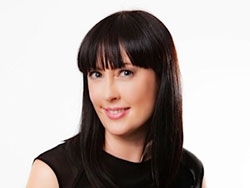More than 700 rural nurses from across Australia have voiced their professional needs and concerns in a CRANAplus survey.
As the peak body for the remote health workforce,
CRANAplus CEO Christopher Cliffe said the organisation launched the
Rural Nursing Survey to identify the key priorities, education and support needs of an under-represented part of the rural health workforce.
Subscribe for FREE to the HealthTimes magazine
“Although we are much more about remote health, a vast majority of remote health is provided by remote area nurses, and remote area nurses - where do they come from and where do they go to? It’s rural health so it’s part of the pipeline in and part of the pipeline out.
“Many of us actually transition between rural nursing and remote nursing but they are quite different areas of practice.
“In rural nursing you are often part of the community, you might come from the community. Whereas, when it’s remote nursing you are often a visitor - you are going in and doing an intensive block of work and then you often hightail it out for a while.
“We were getting quite a bit of lobbying from our membership saying - we’ve got all this great stuff for remote health but what about rural health?
“The survey was about just asking some simple questions - is there anything CRANAplus can be doing more for you? Can we help you, can we support you, can we educate you better?”
Mr Cliffe said there had been an incredible response to the survey, with more than 200 country nurses completing the online survey in the first 12 hours.
“For us, it’s telling us that there’s a need out there, there’s a gap in the market that rural nurses don’t necessarily feel as valued maybe as their remote or urban cousins.
“They are a smart, engaged part of the workforce, and they are quite keen to drive some reform, I think.”
Mr Cliffe said survey respondents have highlighted a range of issues, from a need to introduce national professional standards for rural nursing to better safety and security.
“There was also a vibe across all of it that they are not well respected and they are not well utilised by the medical staff that work in small country hospitals, as well as the management of small country hospitals,” he said.
“Every practice is often funded differently. A lot of these patients who come to their small country hospitals, their primary after hours service can very effectively see, assess and manage them either by the nurse or by the nurse in consultation over a telephone call with a doctor.
“That’s good for the patient - it’s quick, it’s easy, it’s a good model of care, and it’s also more cost effective, one would assume. But in a lot of places, unless the GP gets called in, the GP doesn’t get paid for that.
“I think there’s some gaps and depending on the town, depending on the doctor, a lot of these rural nurses have sort of been dumbed down because their job, as soon as somebody hits the door, is to ring the doctor and that’s not a good standard of care.”
As a result of the survey, CRANAplus plans to develop some education resources and other tools for rural nurses.
Mr Cliffe said it’s important rural nurses stand up, unite, and have their say.
“If you’re not at the table, then you’re likely on the menu,” he said.
“They need to start being an instrument of the health care system, and start becoming a driver of health reform and health policy.
“They have got so much to give to their communities about improving their health, safety and welfare. I think it’s just time that rural nurses stepped up and accepted the challenge.”













